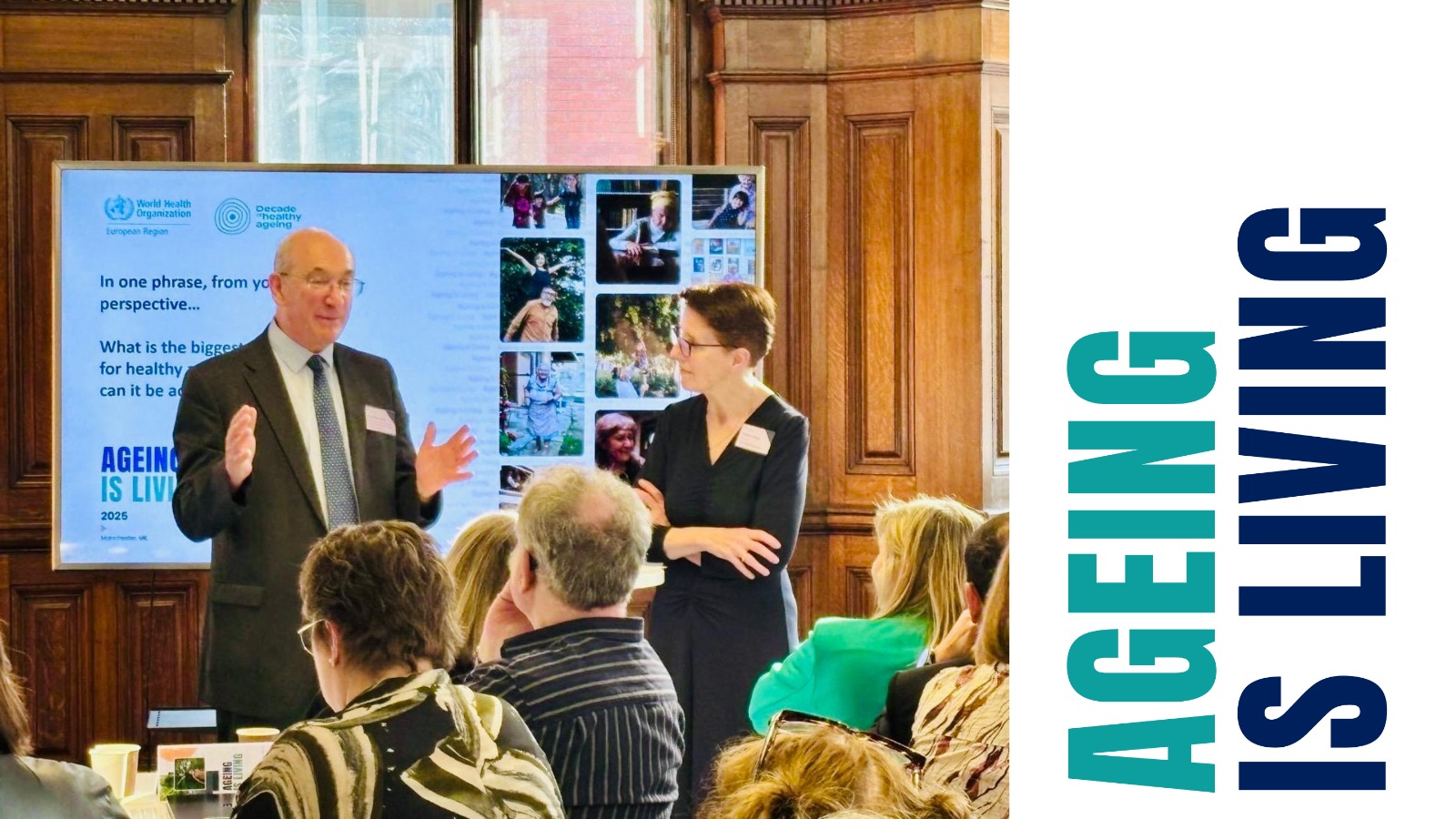Event highlights
As part of the Age-Friendly Futures Summit, a dedicated stakeholder engagement was co-hosted by the Centre for Ageing Better, the Greater Manchester Combined Authority, Manchester Metropolitan University and WHO/Europe. Held in Manchester on 26 March 2025, the event brought together 45 participants from government, academia, civil society, philanthropy and international organizations to support the development of the forthcoming WHO/Europe strategy, “Ageing is living: promoting lifelong health and well-being (2026–2030)”.

The session was opened by Natalie Turner, Deputy Director for Localities at the Centre for Ageing Better, and featured a high-level discussion with Yvonne Doyle, former Medical Director for Public Health England, and Peter Kelly, Regional Director of Public Health for the North East and Yorkshire (United Kingdom).
Reflecting on the future of ageing, Peter Kelly remarked: “Healthy ageing and older people are not a burden – they are a vital asset to society. Their life experience, skills and knowledge contribute immense value that should be recognized and embraced”.
Participants called for a shift from reactive care to prevention – through home-based support, fall prevention, walkable communities and accessible public spaces. Long-term care was a recurring focus, with calls for stronger integration across health and social sectors, public investment in housing and services, and models that support ageing in place. Participants also emphasized the urgency of addressing ageism and building inclusive systems that recognize older people not only as recipients of care but as active contributors to societal change. Real-world examples from Ireland, the Netherlands and Portugal underscored the value of community-driven approaches that promote autonomy, purpose and social connection in later life.
The insights from this dedicated stakeholder engagement are helping shape a strategy grounded in the lived experiences of older people and the realities facing communities across the Region.




